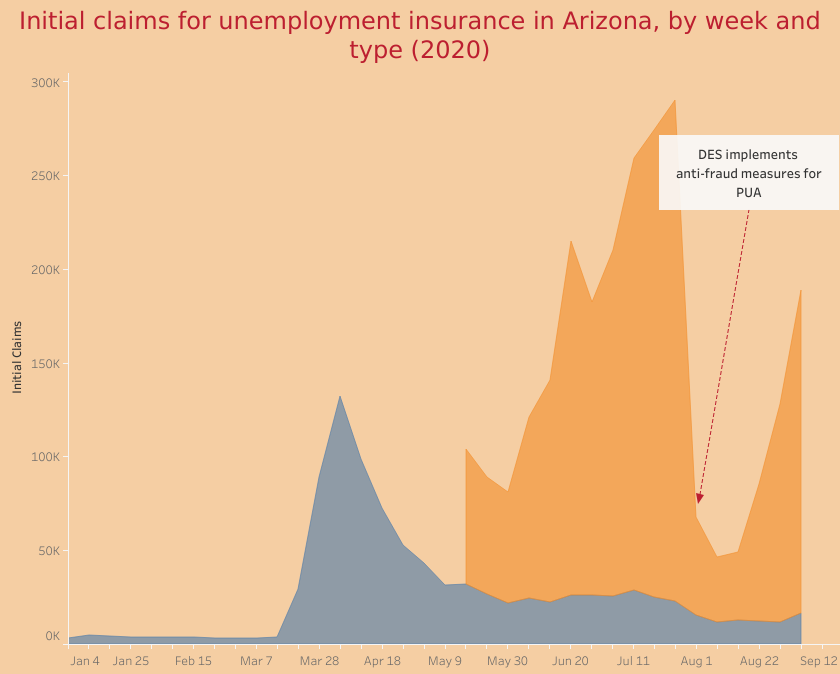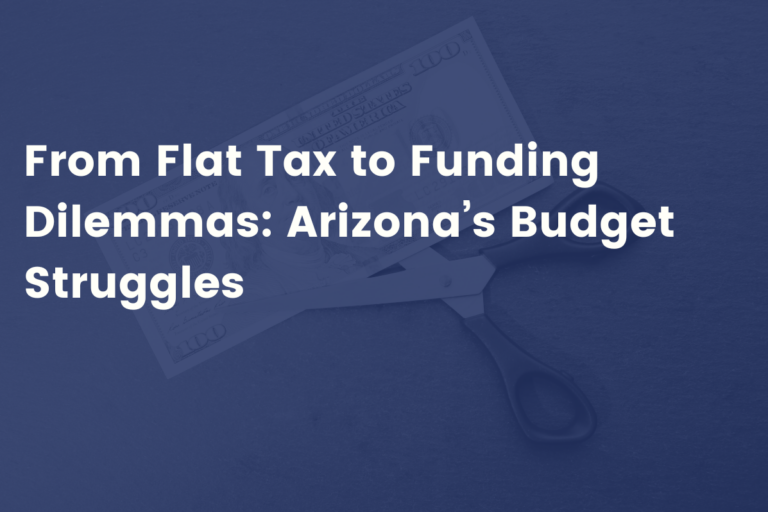
Unemployment insurance is an effective, necessary boost for Arizona’s workers and businesses
As the COVID-19 pandemic and its effect on workplaces rages on with additional workplace shutdowns in Arizona, tens of thousands of Arizonans will continue to file for unemployment insurance (UI) every week. Yet, unemployed workers in Arizona will see a massive cut in their weekly payments if UI provisions in the CARES Act are not extended or if Arizona officials do not strengthen the system. While some may believe that UI suppresses economic activity, the facts suggest otherwise. UI is one of the most effective means of stimulus governments can deploy to shorten the recession. Arizona needs this investment to support workers now.

UI replaces the wages of workers laid off, furloughed, or with reduced work through no fault of their own. By minimizing the shock to household earnings, workers can continue to spend in the local economy while seeking their next job opportunity. Because of the social distancing requirements to combat COVID-19, many businesses will be unable to return to total worker capacity, prolonging joblessness for many. The current recession is not a shortage of workers, but more a shortage of customers due to decreased household income. As a payment directly to impacted households who will spend it quickly, UI can efficiently stimulate the economy. A study found that during the Great Recession, every dollar invested in UI yielded $1.61 in local economic activity. UI does not suppress employment; by contrast, it creates jobs during economic recessions.
UI also effectively targets displaced workers and communities hardest hit by the pandemic. As Black, Latinx, Indigenous, and other workers of color of more likely to lose their jobs during economic downturns, UI is an important lifeline. Workers of color and lower-educated employees also have less savings to cushion personal budgets until they can return to work. UI prevents households from depleting their savings and spiraling into debt or poverty. Previous studies of the Great Recession found that UI benefits both lifted many workers out of poverty and supported the housing market as payments helped with rent and mortgages.
UI is a smart investment to stabilize Arizona’s economy during the recession. And studies have shown that 1) states with stronger UI systems see stronger economic boosts and 2) investments in UI would have the most significant impact while unemployment is still high. Without the federal UI supplement secured through the CARES Act, Arizona’s UI system is amongst the most restrictive and does little to help displaced workers as the pandemic keeps them away from work.
Arizona’s prolonged shutdowns to mitigate the virus’ spread are not going away anytime soon. And as the UI “cliff” approaches at the end of July, Arizona’s leaders at the federal and state level should meet the moment, put workers first, and invest in UI.



